Virtual Production at the NFTS
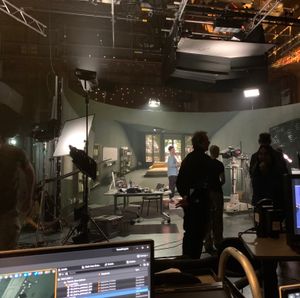
I recently completed a Certificate in Virtual Production at the National Film and Television School. It gave me invaluable experience working as a technical artist on a film set, both at the NFTS and on a day of work experience for Final Pixel, and was a great opportunity to collaborate with other creative people from a range of disciplines, leaning towards film and post-production.
Below are excerpts from two of the assignments I created during my course, the first on my own and the second as part of a team.
The Invasion
My first assignment was to make a short movie in Unreal. This previs is based on a screenplay, The Invasion, I co-wrote with Alex Walker.
This assignment was mostly to ensure that everyone was up to a basic standard in Unreal, as most of the students came from film or postproduction. I was the most technical person there (at least when it came to Unreal), so the challenge for me was understanding a little of the grammar of film and applying it in the game engine. It gave me the perfect excuse to work some elements of the engine I hadn't used as much: applying face and motion capture to Metahumans, chaos destruction, and sequencer (since most of my work before then was real time.)
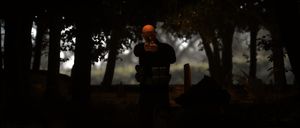
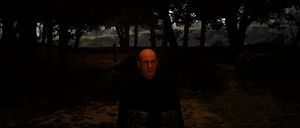
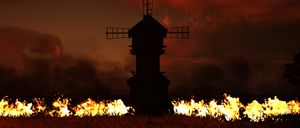
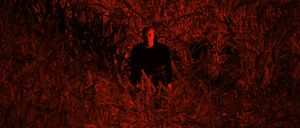
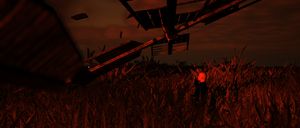
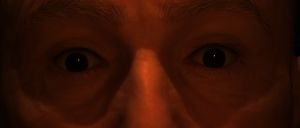
Before / After
This short film was our final assignment. We had to build an environment to be used as backdrop on the NFTS volume and then film a very short (2-page) script with actors. It gave us a chance to not only do the technical work, but have actual experience of working on a VP set under a heavy time pressure - we have just under four hours to setup, rehearse, and film everything.
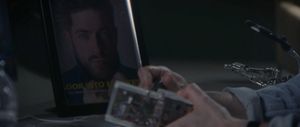
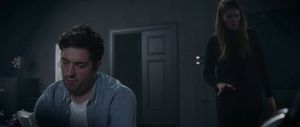
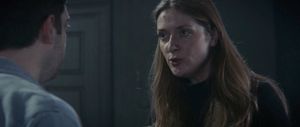
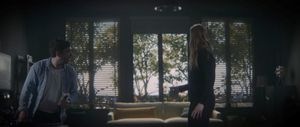
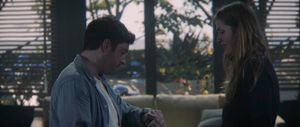
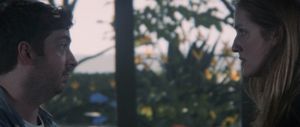
I collaborated with some brilliant fellow students with a range of skills - director, cameraman, VFX artist, and designer. We created the concept together, and then I wrote the screenplay. Telling a story in essentially one location in 2 minutes was a real challenge, and I also wanted to leverage some of the creative potential of having a realtime background by making a story that allowed it to radically change. I also helped to create the environment, making sure it was stress-tested and efficient so we didn't have any nasty surprises.

On the day I was one of the technical artists on the 'brain bar' helping to run the volume and, because we'd done so much prep work on the environment beforehand, it ran mostly without incident.
So why did I take the course?
I have a habit of pursuing ideas and then finding that I've wandered into other people's industries. This first started with the Digital Ghost Hunt, where my hazy ideas about combining Augmented Reality and site-specific play (more playground than theatre) led me into immersive theatre.
I wandered into VP via my work in Unreal Engine, which started in lockdown. The immersive work I'd planned to do was put on hold, as getting audiences together in small historical spaces became frowned upon. If you start using game engines in any kind of immersive work, it's not long before you find yourself in Virtual Production.
My experience with film up until that point had been as a writer of a few short films (with the inevitable feature shoved into a drawer.) I'd helped out on the short film sets and found it... really boring. Compared to theatre, with its arc of growing intensity as everyone works towards, and then freaks out about, opening night, film sets felt disjointed, atomised, and strange.
I realise that a lot of that feeling is because being a writer on a film set means you're on the outside of this complex industrial machine humming along around you. Once I properly had something to do my experience was very different. I was a cog in that beautiful machine, and though I didn't understand half of what was going on, I had a vital part to play back there at the brain bar.
Working in an unfamiliar medium with familiar tools made me think about how I used them, and why. I've come to appreciate how my imagination is spatial, in a way I hadn't appreciated when writing books. It's why I was drawn to immersive, and I think to VP. Virtual Production is new and not precisely defined, a liminal space where gaming, immersive, and film meet. It's exactly the kind of creative space I like to explore
A VP set has the feel of a proscenium arch with an infinite backdrop. I felt immediately at home, despite not understanding any of the finer points of filmmaking. Although VP has understandably drawn many people from film and games, I think theatre/immersive practitioners will be an important addition, as they bring both the spatial storytelling of games and the production experience of theatre.I'm not sure how it's going to fit into my practice just yet but in the meantime I'm going to be pursuing freelance work in the sector to hone my skills. I have a lot to learn, and that's always the fun part.